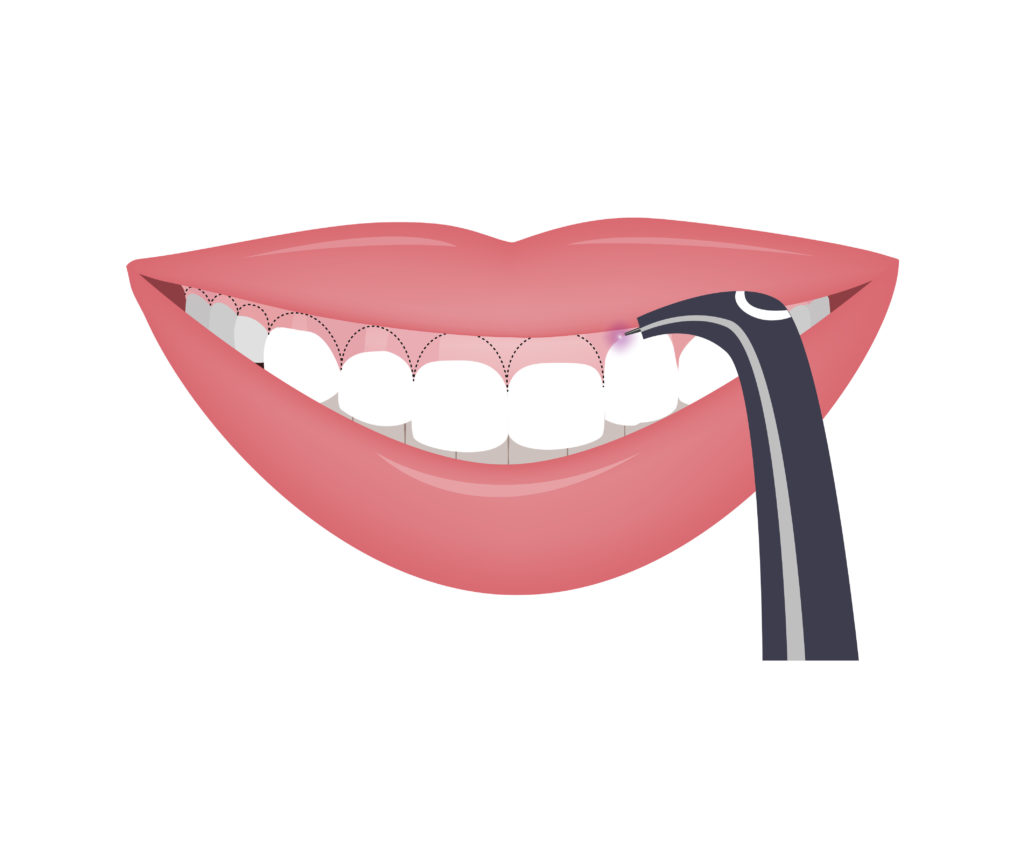
Does it seem like your gums are bigger than you remember? You might notice that more soft tissue is visible whenever you smile, which can make it somewhat embarrassing to see yourself in photos. But overgrown gums aren’t just a cosmetic issue; they can also be dangerous to the teeth. If you want to protect your mouth, understanding the causes of gum overgrowth and the consequences of a gummy smile is an essential step.
What Causes the Gums to Become Overgrown?
There are a few different potential causes of gum overgrowth. The most common is inflammation caused by a buildup of plaque in your mouth. The tissue may respond aggressively to the irritation of the bacteria, thus covering more of the tooth. (Note that even if this happens, you can still experience gum recession as a result of gum disease.)
In other cases, the overgrowth is the result of a condition called gingival fibromatosis, which can cause such excessive growth that it could potentially cover the teeth entirely. It can also be a side effect of calcium-channel blockers, immunosuppressants, and other medications. And of course, there are some people who simply have gummy smiles as a result of genetics. If you’re experiencing gum overgrowth, it’s best to see a periodontist right away to narrow down the cause.
What are the Consequences of Gum Overgrowth?
Since most types of gum overgrowth are inflammatory, they can cause the immune system to attack the teeth and bones. As a result, you could be at a higher risk for tooth loss the longer that your condition goes untreated. Also, overgrown gums can sometimes trap bacteria, and various irritants under the gumline so that they can’t be easily removed. This can lead to further swelling, and in the worst-case scenario it could speed up the process of tooth decay. In short, if you want to keep your smile healthy and whole, it will be a lot easier to do so once your overgrown gums have been corrected.
How Can Gum Overgrowth Be Treated?
When you talk to your periodontist about a gummy smile treatment in Salt Lake, their recommendation will depend on the cause. If it’s a side effect of gum disease, a periodontal treatment such as scaling and root planing can help reduce swelling. For those who simply have naturally overgrown gums, a process called crown lengthening can be used to remove the unneeded tissue and restore the balance between your teeth and gums.
It is always better to be cautious when it comes to gum health. Even if your gummy smile isn’t causing you any pain, you should still have it checked out as soon as you can; it could very well end up saving your smile.
About the Author
Dr. Rob Wood strives to treat his patients the same way he would want to be treated. Thanks to his specialty training in periodontics at the University of Texas, he is able to treat gum disease, gum overgrowth, and a variety of other conditions with the gentle care that you and your loved ones deserve. If you have concerns about a gummy smile, you can make an appointment with Dr. Wood at Utah Implants & Periodontics by visiting his website or calling (801) 322-5032.
